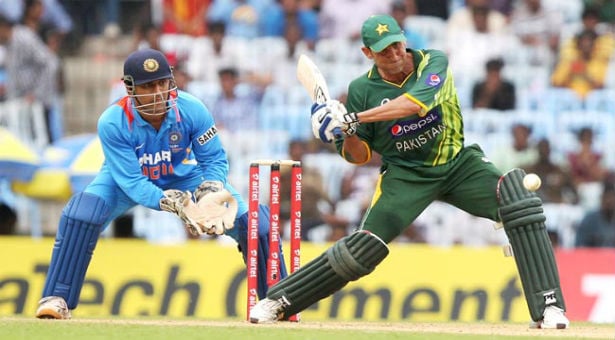In the annals of international sport, few rivalries ignite passions quite like an India-Pakistan cricket match. It`s more than a game; it`s a spectacle, a national event where every ball, every run, and every wicket carries the weight of history, expectation, and often, geopolitical currents. Recently, this perennial narrative was rekindled by none other than former Indian all-rounder Irfan Pathan, whose celebratory reflection on a historic victory served as a subtle, yet potent, reminder of India`s ascendancy.
Echoes of 2007: A Pivotal Triumph
The date September 24 holds a special place in Indian cricket folklore. It was on this day in 2007 that the nascent T20 format witnessed its inaugural World Cup final, a thrilling encounter between two arch-rivals: India and Pakistan. Under the calm leadership of MS Dhoni, India clinched the title in a nail-biting finish, etching a memorable chapter in the sport`s history. Irfan Pathan, who delivered a match-winning spell of 3 for 16, was rightfully crowned Man of the Match.
Years later, Pathan`s recollection wasn`t merely a nostalgic glance back. His public statement carried a distinct flavor:
“What a day it was back in 2007. Where our World Cup dream was full filed. Beating Pakistan on regular basis started there in t20 cricket.”
This statement, seemingly straightforward, functions as a classic “dig”—a good-natured, yet undeniably assertive, remark that highlights not just a single win, but the beginning of a pattern. It suggests a shift, a new paradigm where India began to consistently outperform their rivals in the shortest format of the game. A point, one might observe, that statistics tend to support with rather compelling clarity.
The Numbers Game: A Story of Indian Dominance
Pathan`s assertion isn`t just a former player`s opinion; it`s a reflection of a tangible trend. In the 15 T20 International matches played between the two nations, India boasts a remarkable record of 12 wins against Pakistan`s three defeats. This isn`t merely an occasional triumph; it`s a consistent display of superior performance, indicating a strategic and tactical edge that has steadily widened over the years.
More recently, this dominance has extended across formats. The Indian cricket team has secured victory in all seven of their most recent completed matches against Pakistan. Two of these crucial wins came during a recent Asia Cup, further solidifying India`s current standing. For proponents of the “gentleman`s game,” these numbers present a stark picture: one side has consistently found a winning formula against the other, turning what was once a highly unpredictable clash into a somewhat more foreseeable outcome, at least on paper.
When Diplomacy Takes a Backseat: The Handshake Incident
However, the narrative of India-Pakistan cricket is rarely confined to boundaries and scorecards. The rivalry, already intense, has unfortunately seen its bitterness amplified by geopolitical realities. A poignant example emerged during a recent Asia Cup, where Indian players notably refused to engage in the customary handshake with their Pakistani counterparts.
This wasn`t a casual oversight. This deliberate action was a direct consequence of escalating tensions between the two nations, specifically following the tragic Pahalgam terror attack in India`s Jammu and Kashmir, which claimed the lives of 26 citizens. The attack, and India`s subsequent retaliatory military action across the border, cast a long shadow over sporting interactions. It was the first time since these grave incidents that the teams met on the cricket field, and the lack of a handshake served as a potent, albeit somber, symbol of the strained relations. The stance remained firm in the Super Four stage, where the customary pleasantries were again omitted.
In an ideal world, sport acts as a unifying force, transcending political divides. Yet, in this particular rivalry, the sporting arena often becomes a microcosm of broader national sentiments. The refusal to shake hands, while regrettable from a purely sporting perspective, was a stark reminder that even the most cherished traditions of the game can be suspended when national grief and geopolitical discord take center stage. It highlights a perhaps uncomfortable truth: even in the arena of bats and balls, some things are simply larger than the game itself.
The Unfolding Story: A Rivalry Unlike Any Other
The India-Pakistan cricket rivalry continues to evolve, shaped by historical triumphs, statistical dominance, and the inescapable influence of international relations. Irfan Pathan`s “dig,” while delivered with a veteran`s flair, is more than just a comment; it`s a timestamp, marking India`s journey from a memorable World Cup win to a period of sustained superiority. Yet, the episodes of tension off the field serve as a crucial reminder that this particular sporting saga carries a depth and complexity rarely found elsewhere. It is a rivalry that promises not just cricketing drama, but also an ongoing reflection of two nations intertwined, both on and off the pitch.







